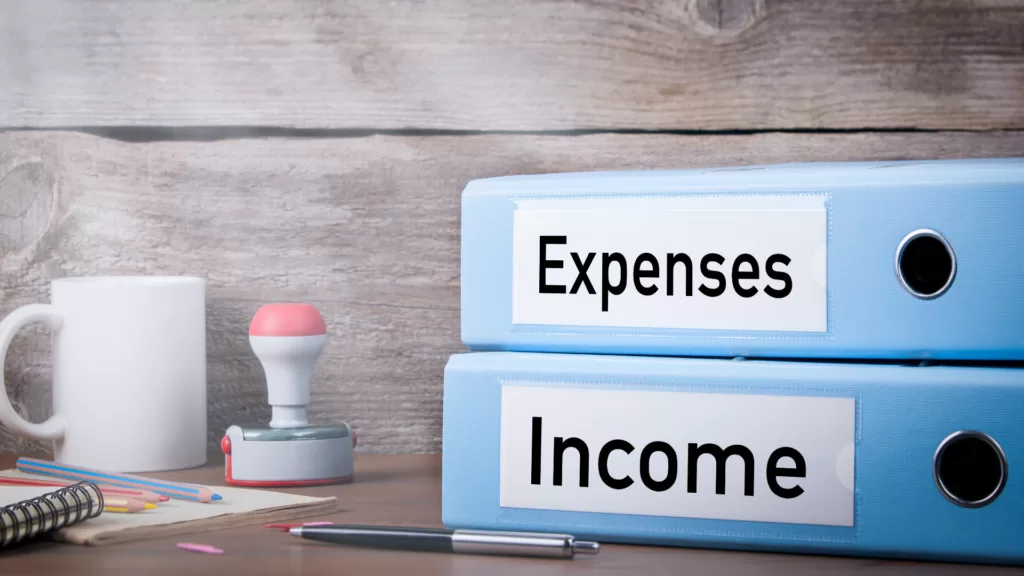The need for managing your monthly budget
Monthly budget management is concerned with balancing the amount of money you have coming in each month against your fixed and necessary expenses. Calculate whether you have any room for bad luck/emergency costs each month; if not, your expenses must be adjusted. Once you’ve devised a strategy, stick to it as closely as possible. Make the commitment to save at least one dollar per month, every month. Even if that amount is small, it is far preferable to spending too much money every month, depleting any savings you may have, and then waking up one morning to discover you have nothing left in your bank account.
Sticking to a budget is possible when we:
1. Make the decision to be honest with ourselves about our spending.
2. Take the time to calculate how much money we are actually spending on various items.
3. Identify recurring unnecessary costs that must be stopped or reduced.
4. Be factual about fixed monthly costs that are unavoidable or necessary.
5. If you go over budget this month, be prepared to cut back on next month’s expenses.
The simple goal is to gain complete control over your money and how it is spent. You must be disciplined and willing to make the occasional difficult decision. You may need to tighten your financial belt from time to time to keep your budget on track. If you can live comfortably for three months with your financial belt tightened, you should consider keeping that level of spending as your new budget.
You will be filled with pride after 6 months of sticking to a budget and consistently having at least one-dollar surplus each month. This self-assurance will help alleviate and/or reduce stress in your life and allow you to be optimistic about the future. Let us set out to be happy and enjoy our lives in a sustainable way, so that we can do it month after month with a big smile on our face.
What does a monthly budget look like?

Putting together a monthly budget when you are on a fixed retirement income is a little different to how you might have done it when you were still working.
The main reason being is that you don’t have the option to work some overtime next month to make up for exceeding the budget this month.
For starters, there’s going to be some things that are essential for you at over 70 years of age that you weren’t probably even thinking about at 45.
Without providing 100 different mock examples in the post, I will not be able to be off assistance to everyone’s situation. What I hope you do take away from this example and this post is that you will be able to do all of this on a single sheet of A4 paper or ruled foolscap paper etc.
The intent and content of the budget is what’s important.
Putting together the budget part 1 involves looking at your unavoidable and essential costs such as:
1. Food & Supermarket General (You have to eat).
2. Depending on living circumstance you will be paying council rates, rent, retirement village, assisted living or aged care facility rates.
3. Vehicle Fuel.
4. Community Trips, Regular outings to get you meeting people.
5. Pet Food and other pet related costs.
6. Home and Contents Insurance.
7. Electricity Bills.
8. Home Maintenance Requirements.
9. # Various Indulgences # – This could be for playing lawn bowls?
10. Council water rates.
11. Comprehensive Vehicle Insurance.
12. Mobile Phone Costs (Use your phone’s hotspot for wi-fi internet at home).
13. Vehicle Servicing and repairs.
14. Dentist.
15. Medicines and other health requirements.
16. Vehicle Registration.
Please Note: When calculating the monthly cost, a month is not 4 weeks (28 days), you need to work out why the yearly cost would be first, daily cost x 365, weekly x 52 etc and then divide that number by 12 to work out what the true monthly cost is.
Part 2 of the budget is for working out how much you can afford to spend on non-essential expenses. This is where it can be very difficult and you might have to make a tough decision or 2 if you cannot get your monthly budget to be at least 1 dollar per month less than your fixed income.
Below are what I consider to be non-essential costs:
1. Caravan Trips around your country
2. Flights around your country or overseas
3. Updating your vehicle with a newer model just for the heck of it
4. Updating electronic or entertainment related devices at home even though there is nothing wrong with the devices that you have
5. Spending money on any form of gambling
6. Spending money on cigarettes or alcohol
As you’ll notice on my mock example provided, there is no provision for any of the above non-essential costs. I feel as though these things would be reserved for people that are a lot better off financially than the battlers out there I’m hoping to help.

Keeping track of Monthly Expenses
The last thing I would like to mention is that when you first start endeavouring to live according to your budget, keep a track of what you are spending money on.
Here are five Tips and Tricks for avoiding spending money on anything that’s not budgeted:
1. Write out a list of exactly what you need today before you leave the house and take it with you.
2. Look at it today, sleep on it and if you still really need it tomorrow, then go back and purchase it. Avoid spending on things that you feel would be nice to have, only spend your money on things you know you absolutely need. Never buy on emotions, only on fact.
3. Look for what’s on special and don’t have a preference about brands, if you need a bottle of soy sauce, don’t be fussy, buy the cheapest soy sauce bottle in that isle of the supermarket.
4. Work out which days of the week are best to go shopping. For instance, some supermarkets have a certain day each week where they put a lot of things on special. A lot of people will go and buy their meat products on a Sunday evening, this is where the supermarket will be marking down anything that is about to approach the use by date, you can get some drastically reduced bargains at this time. Naturally, you will need to be freezing these products when you get home. So if you are buying a tray of sausages, be sure to buy a packet of freezer bags, so you can split that tray up into smaller servings and freeze each one.
5. Make food in bulk at home and then put that food into single serve size containers and freeze them. Make sure that any containers are suitable for freezing the food and then for defrosting and cooking in the microwave.












[…] 0 0 votes Article Rating […]
[…] Glass Jars-Ring Pull Lids on Tins-Round Door Knobs. Large Mobility Scooters – Mintonna Reviews. Managing monthly budget and expenses – Mintonna Reviews. Avoid feeling Isolated or lonely – Mintonna Reviews. Learn how to play lawn bowls – Mintonna […]